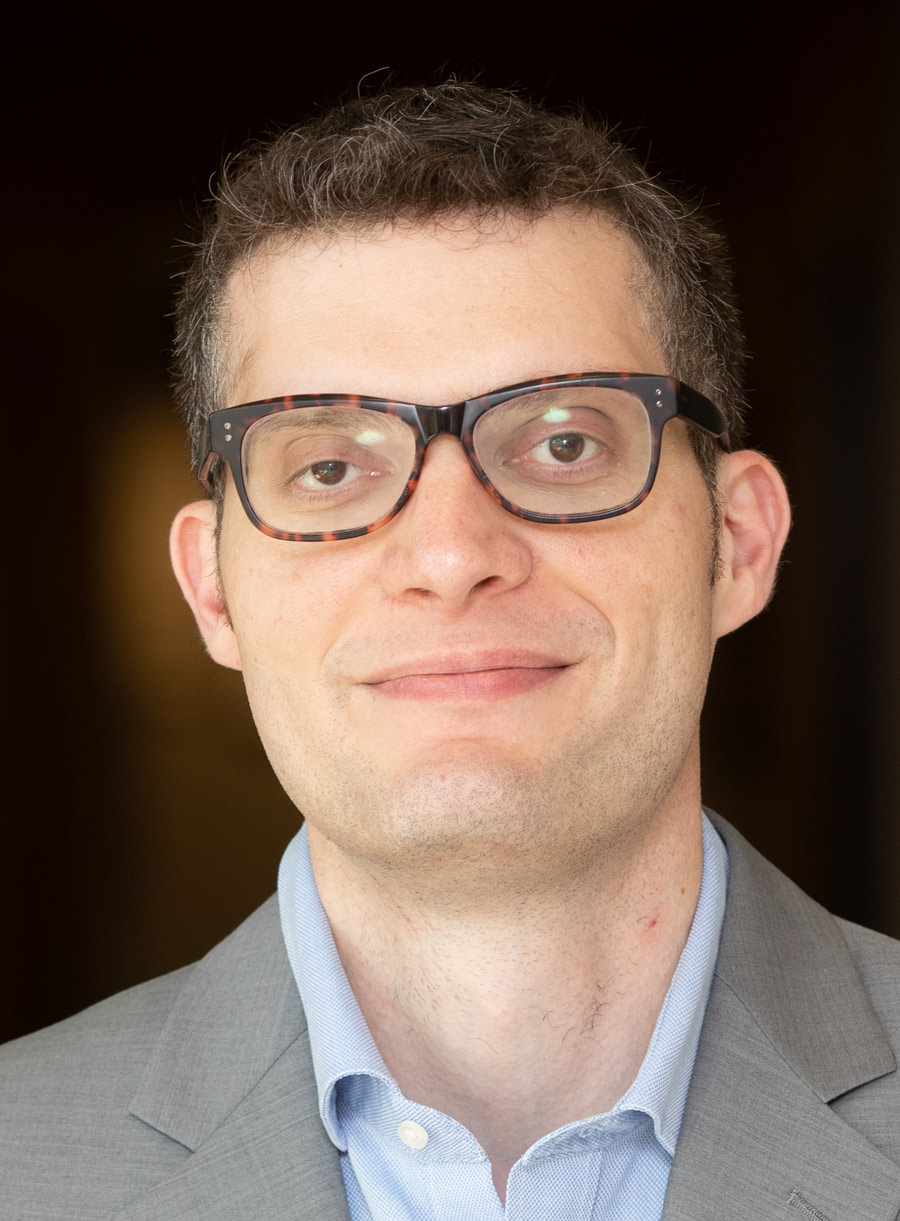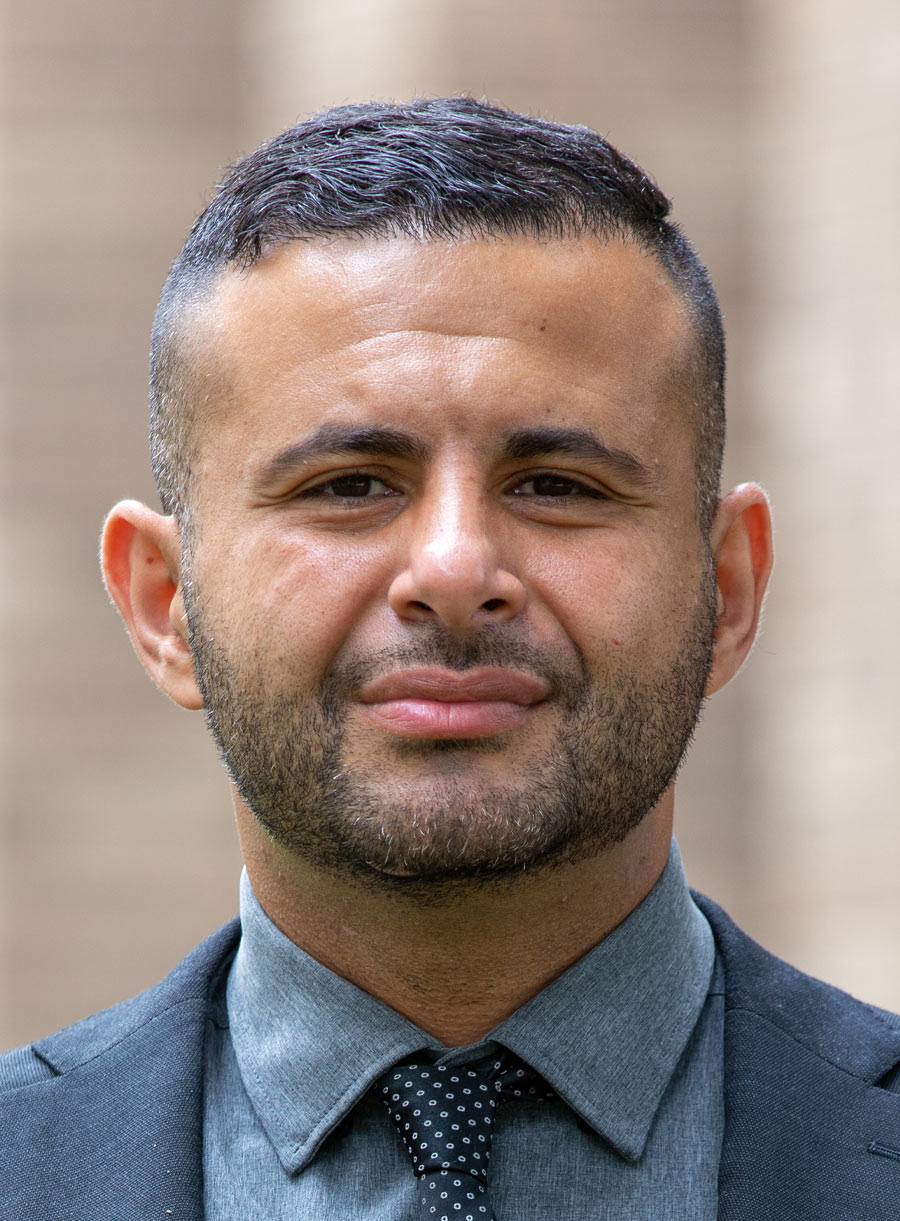■ faculty notes
Featured faculty
For Wayne State University Law School faculty, scholarship is an instrument of change. Here, we highlight the recent work of six professors — William Ortman, Sanjukta Paul, Khaled Beydoun, Kirsten Matoy Carlson, Julia Qin and Lance Gable — who are changing the conversation in the fields of criminal justice, antitrust, Islamophobia, legislative process, international trade law and public health.

William Ortman
Assistant Professor
Edward M. Wise Research Scholar
Assistant Professor
Edward M. Wise Research Scholar
- Confrontation in the Age of Plea Bargaining, Columbia Law Review (forthcoming 2021)
A defendant’s right to confront witnesses against them is a cornerstone of our adversarial criminal justice system — or is it? Defendants can invoke their confrontation right only by going to trial. But in the age of plea bargaining, the overwhelming majority of defendants convicted in the United States never get to exercise this constitutional right. Ortman challenges the Supreme Court to align its Confrontation Clause jurisprudence with the reality of contemporary criminal justice. He proposes a procedural device through which defendants could exercise their right to confront witnesses — the “Sixth Amendment deposition.”

Sanjukta Paul
Assistant Professor
Romano Stancroff Research Scholar
Assistant Professor
Romano Stancroff Research Scholar
- Antitrust as Allocator of Coordination Rights, UCLA Law Review (2020)
The standard account of antitrust law is that its purpose is to promote competition. In today’s vigorous public debate about antitrust law, the left and right disagree about how that is to be done. Paul puts forth a different and novel framework for understanding what antitrust does: It allocates economic coordination rights. In other words, it decides what kinds of economic cooperation are permitted and what kinds are not. Using this framework, Paul shows that the law’s current criteria for accomplishing this task incorporate a preference for concentrated control and a bias against democratic cooperation — an inversion of the original purposes of antitrust law.

Khaled Beydoun
Associate Professor
Associate Professor
- On Sacred Land, Minnesota Law Review (forthcoming 2021)
The last decade has seen a sharp uptick in land-use discrimination against Muslims, underscoring many local governments’ staunch opposition to the creation of mosques and other Muslim institutions. Beydoun breaks ground regarding the interplay and compounded impact of the Anti-Sharia Movement, local government authority, and the Religious Land Use and Institutionalized Persons Act (RLUIPA) in shaping the religious freedom of Muslim communities. He offers proposals to enhance RLUIPA’s capacity to protect Muslims and other religious minority groups from land-use discrimination during a moment of rising racial and religious animus.

Kirsten Matoy Carlson
Associate Professor
Associate Professor
- Rethinking Legislative Advocacy, Maryland Law Review (forthcoming 2021)
Scholars know little about the role of advocates in shaping statutory law because the study of legislative advocacy has been left to political scientists, neglecting the legal aspects of the process. Carlson fills this gap with new empirical data on American Indian advocacy, grounded in an innovative, mixed methods approach that brings law back into the research and provides more accurate descriptions of how legislative advocates behave. She recenters the role of law and legal frames in legislative advocacy, emphasizing legislative advocacy as a lawmaking enterprise, and providing insights about legislative advocates’ behavior overlooked in previous studies.

Julia Qin
Professor
Professor
- WTO Reform: Multilateral Control over Unilateral Retaliation – Lessons from the U.S.-China Trade War, Trade, Law & Development (2020)
Preventing trade wars is a key function of the World Trade Organization’s (WTO) rule-based system. But as the United States and China waged the largest trade war in history, the WTO sat on the sidelines, unable to do anything to stop the fight. While the crisis was provoked by the Trump administration, Qin locates the key failure in China’s retaliatory tariffs, which violated the rules of the international trade regime, and in the absence of a workable WTO mechanism to enforce those rules. She finds that while curbing U.S.-style aggressive unilateralism will require restoring the negotiating function of the WTO, ensuring that other countries do not respond to such aggressiveness unilaterally will go a long way toward prevention of future trade wars. Qin makes the case for improving multilateral control over unilateral retaliation and the necessity of its addition to the WTO reform agenda.

Lance Gable
Associate Professor
Associate Professor
- Assessing Legal Responses to COVID-19, Public Health Law Watch (2020) (with Scott Burris, Sarah de Guia, Donna E. Levin, Wendy E. Parmet and Nicolas P. Terry)
Despite large outbreaks of COVID-19 in China and Europe in early 2020, federal and many state government officials in the United States acted slowly to respond to the risks of the virus, notwithstanding having the legal authority to do so. Gable details the widespread failure of the country’s leadership in implementing restrictions on mass movement; imposing control of personal interactions and property uses; and setting limitations on personal, recreational, educational and commercial activities. He evaluates the allocation of scarce medical resources and crisis standards of care. Gable takes a proactive approach in addressing the COVID-19 crisis, outlining more than 20 recommendations to change the country’s course and help it recover from a catastrophe that was decades in the making.

Learn More
For a comprehensive list of our faculty’s most recent works, visit law.wayne.edu/faculty/scholarship.